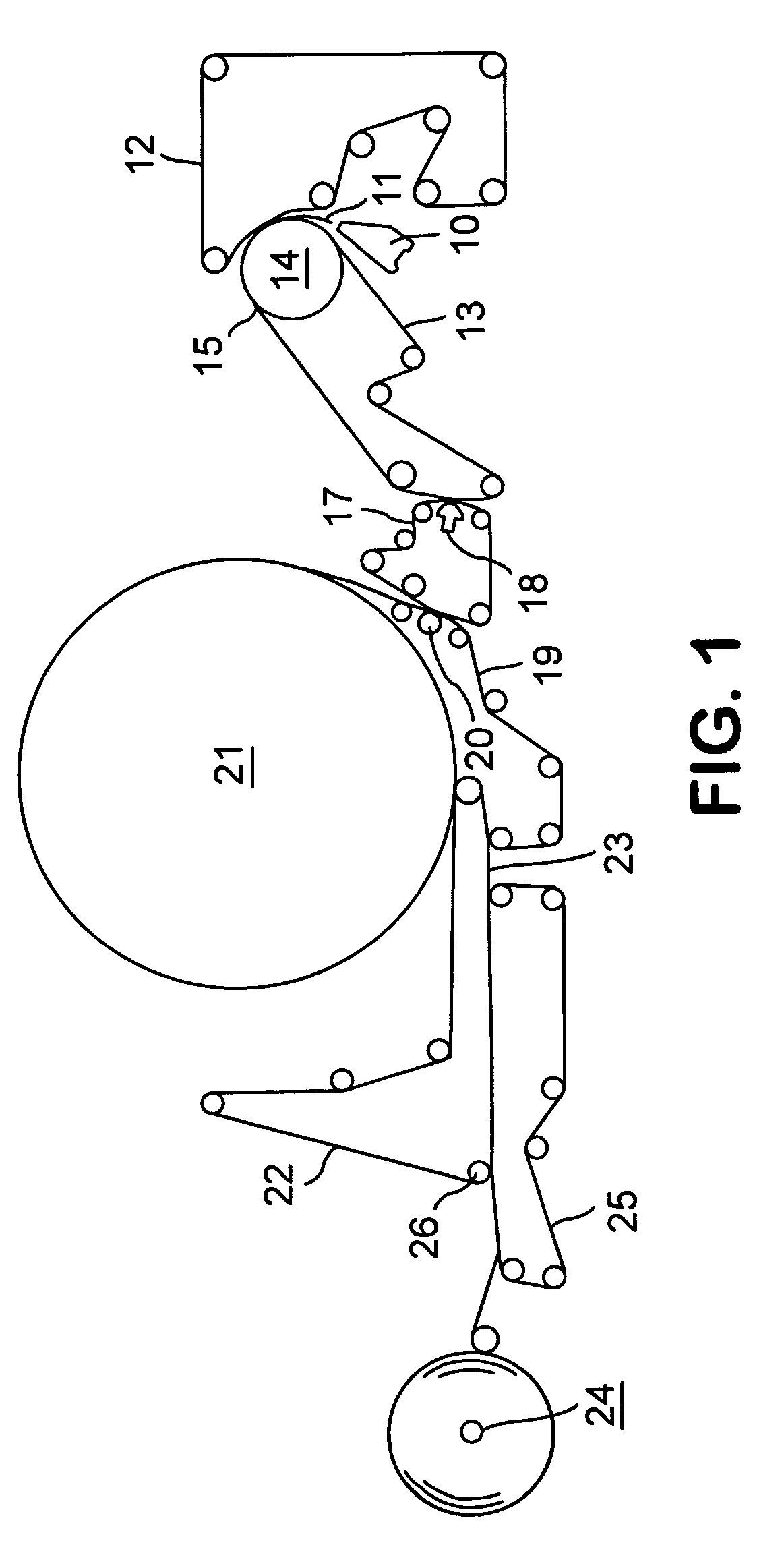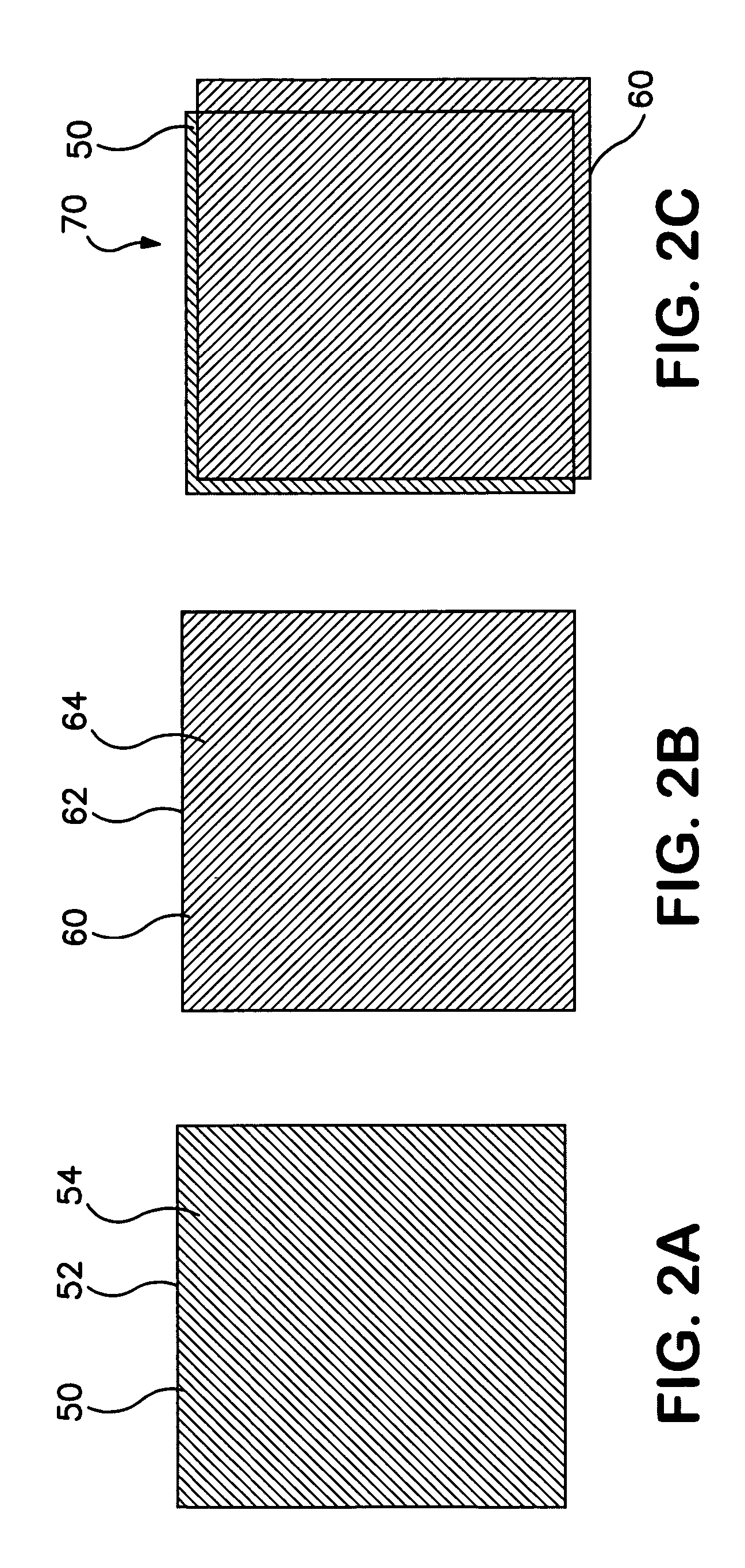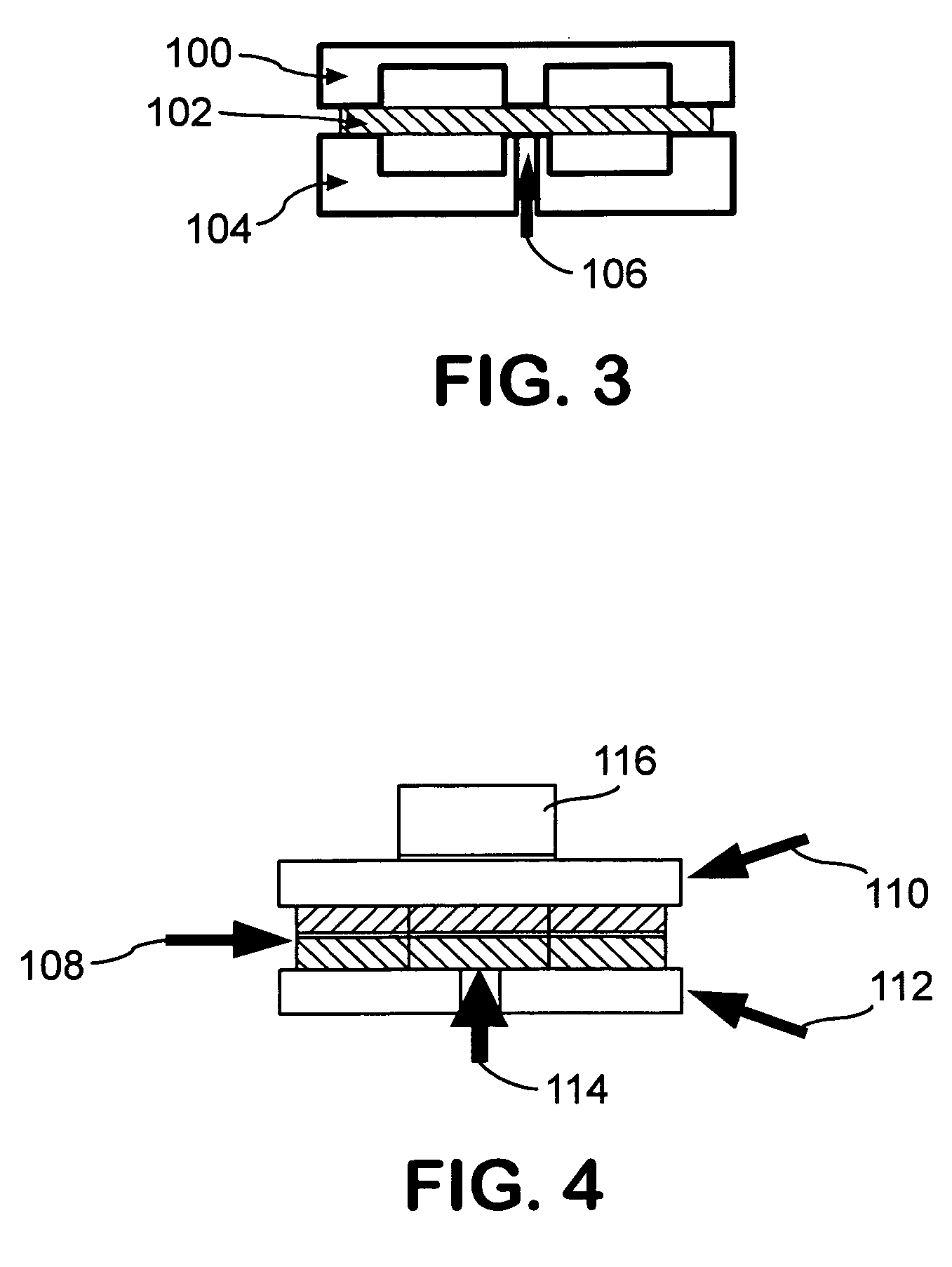Multiple ply tissue products having enhanced interply liquid capacity
a multi-ply, liquid capacity technology, applied in the direction of press section, manufacturing tools, non-fibrous pulp addition, etc., can solve the problems of reducing the rate at which the product is produced, increasing the overall cost of the product, and reducing the strength of the overall product, so as to enhance retain liquid. , the effect of enhancing the ability of the tissue product to absorb liquid
- Summary
- Abstract
- Description
- Claims
- Application Information
AI Technical Summary
Benefits of technology
Problems solved by technology
Method used
Image
Examples
example 1
Interply Absorbency
[0087] SCOTTEX (Kimberly-Clark Corp.), COTTONELLE ULTRA (Kimberly-Clark Corp.), CHARMIN ULTRA (Procter and Gamble), NORTHERN ULTRA (Georgia Pacific) and 10 samples produced according to the present invention and described below were tested for their 1-ply total absorbency, 2-ply total absorbency, and interply absorbency.
[0088] Sample 1 was produced with a pilot tissue machine per U.S. Pat. No. 5,656,132. A three-layer tissue web was produced. The softwood fibers and hardwood fibers were pulped separately for 30 minutes with steam and diluted to about 3 percent consistency after pulping. Parez 631-NC, available from American Cyanamid Co, was added to the center layer only at 1.5 Kg / Tonne (based on that layer only) to provide temporary wet strength. ProSoft TQ-1003, available from Hercules, Inc., was added to the outer layers at 1.0 Kg / Tonne (also based on the layers) as a softening agent. 100% softwood fiber was added to the center layers and 75% eucalyptus / 25% b...
example 2
Holding Capacity
[0109] SCOTTEX (Kimberly-Clark Corp.), COTTONELLE ULTRA (Kimberly-Clark Corp.), CHARMIN ULTRA (Proctor and Gamble), and Samples 7-10 described above were then tested for their holding capacity of 5 sheets. Holding capacity is reported in grams of water per grams of sample. The load on the samples, due to the weight of the plunger and flat plate was 0.05 psi (pounds per square inch).
[0110] The test method is described above and illustrated in FIG. 4. Each test run was repeated three times, the averages of which are reported below and graphically shown in FIG. 17:
PUM
| Property | Measurement | Unit |
|---|---|---|
| width | aaaaa | aaaaa |
| width | aaaaa | aaaaa |
| angle | aaaaa | aaaaa |
Abstract
Description
Claims
Application Information
 Login to View More
Login to View More - R&D
- Intellectual Property
- Life Sciences
- Materials
- Tech Scout
- Unparalleled Data Quality
- Higher Quality Content
- 60% Fewer Hallucinations
Browse by: Latest US Patents, China's latest patents, Technical Efficacy Thesaurus, Application Domain, Technology Topic, Popular Technical Reports.
© 2025 PatSnap. All rights reserved.Legal|Privacy policy|Modern Slavery Act Transparency Statement|Sitemap|About US| Contact US: help@patsnap.com



